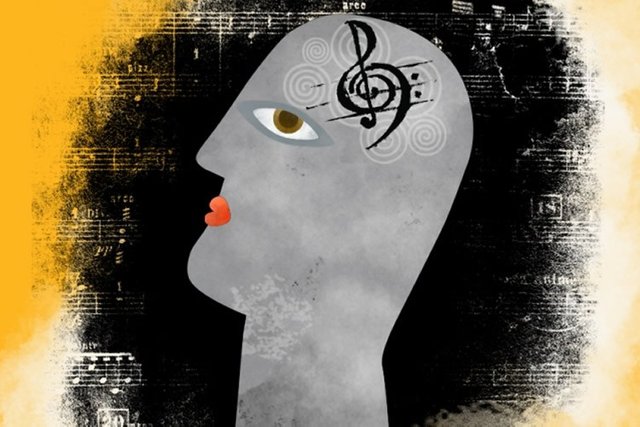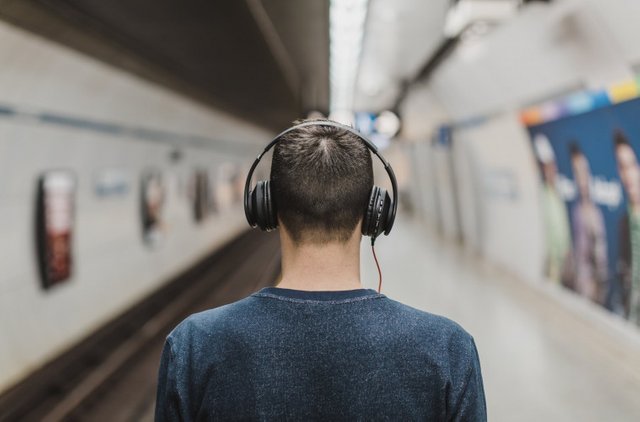Music as a cure for depression (Part 2)
The effectiveness of MT has been examined through many clinical experiences and more and more studies are emerging. In order to determine the extent of this effectiveness, I have selected several relevant studies.

Erkkila et al (2011) conducted a study in Finland, to determine the efficacy of music therapy combined with standard care compared to standard care only (medications) in the treatment of depression. There were 79 participants, aged 18-50, who were diagnosed with depression, according to ICD-10 classification. Prior to being randomized to different conditions, participants were assessed by a masked clinical expert, proficient in diagnosing depression. He had to evaluate the candidates based on the inclusion and exclusion criteria. Patients suffering from anxiety were allowed to participate. However, those with the following clinical characteristics failed to meet the given criteria and were thus ineligible for the study: the ones whose anamnesis included suicidal attempts or psychosis; if they had substance abuse; if their level of depression was rated too high, because it presented an obstacle for the free participation in conversation; and, finally, if they did not possess relatively good knowledge of the Finnish language, which was determined by completing a questionnaire.
The experimental group underwent sessions of individual music therapy together with standard care (medications), while the control group underwent sessions of standard care only. Participants went to 20 biweekly sessions, each lasting 60 minutes and were followed-up at 3 months. The clinical method of the first group was improvisational (active) musical therapy, in an individual setting.
In this particular study, the instruments used were a mallet instrument, a percussion instrument and an acoustic djembe drum. All play was recorded, which made it easier for the subsequent analysis and discussion.
The results showed that the participants who received music therapy (MT) sessions in combination with standard care in the end demonstrated less depression symptoms than those who received standard care only. However, the difference between the two groups after 6 month follow-up assessment was not significant.
The study was performed according to all ethical considerations. The ethical board of the Central Finland Health Care District gave their approval for the study in 2007. Participants gave signed informed consent and the right to withdraw was mentioned.
The study shows that MT, with standard care, is an effective treatment of depression. However, the difference between the two conditions was not significant at 6 months follow-up, which authors have explained by an insufficient sample size. It might be that the number of participants in the follow-up was smaller than in the original study. One limitation is that participants were included in the study regardless of their medication status, in which case it might have happened that some participants who had been taking medication for longer period than others, have experienced reduction of depression symptoms more quickly than those who had only just started with medications. The results would be much more reliable if the initial medication status would be the same for all. What often comes to mind while evaluating randomized control trials such as this is treatment fidelity. Can findings be explained in terms of the clinical method only, or did maybe different therapists themselves contribute to the results? However, this hypothetical variation of effects was analyzed among therapists and no significant variation was found. Moreover, the therapists first went through an extensive training, to ensure the maximum treatment fidelity. Nevertheless, the study, with its socially-important wide-ranging sample of working people, provides us with a valuable discovery: that MT, together with common treatment (medications), has, indeed, beneficial effects on the treatment of depression.

Another study that arrived at the similar results was conducted by Hanser (1994). It was a randomized control trial, the aim of which was to determine the efficacy of MT in the treatment of depression. There were 30 participants, aged 61-85, who were diagnosed with mild to medium depression, according to the Schedule of Affective Disorders and Schizophrenia. These older adults were randomly assigned to one of the three conditions: The first condition was a programme in which a therapist taught them MT techniques, at weekly home visits; in the second condition participants self-administered the MT techniques and received only a 20-minute weekly telephone call from the therapist. The last condition was a wait list control. The research lasted for 8 weeks (one-hour session per week) and there was a follow-up at 9 months (Hanser & Thompson, 1994).
The results reported greater decrease in depression symptoms among those randomized to MT groups, either with the presence of a music therapist or self-administered, in comparison to the control group. This difference was significant even at a 9-month follow up assessment. When it comes to the experimental groups themselves, there were greater decreases of depression symptoms (measured by the Geriatric Depression Scale) among those allocated to therapist-administered sessions, in comparison to those allocated to self-administered sessions, but the difference between the two was not significant.
However, what should be mentioned here is the Hawthorne effect. It might be that the participants changed their behavior solely because they were being studied. Closely related to this is the expectancy effect: participants were expecting that they would feel better, and they indeed exhibited improvements. It could follow that, no matter the particular type of the therapy, placebo effect might occur and patients’ state, as a result, improved. This hypothesis is supported by the Smith’s study, a meta- analysis of 475 studies, on the efficacy of psychotherapy, that came to the exact conclusion that most psychotherapeutic approaches produce improvement (Smith et al, as cited in Shedler, 2010). This study, although concerned with psychotherapy, is relevant for MT as well, because both treatments provide hope and encouragement.
As for the randomization, participants were interviewed over the telephone, which was done by an assistant independent from the research team. This study too, confirms the positive effects of music therapy on the treatment of depression. Music leads to a greater reduction of depressive symptoms, in comparison to psychotherapy.
Another study, conducted by Castillo-Perez et al (2010), supported the above findings. The aim was to compare the effect of music therapy to the effect of psychotherapy in a group of people with low or medium depression. Participants were selected with the help of the Zung Self-Rated Depression Scale and an expert in diagnosing psychological disorders had the task to choose only those with low or medium depression. The size of the sample was 79 people, aged 25-60 years. They were randomly assigned to two conditions: music therapy (n=41) and psychotherapy (n=38). During the course of the study, patients’ depressive symptoms were assessed, once per week, using the Beck Depression Inventory. The music therapy group was listening to a repertoire of baroque music (Bach’s Italian Concerto in F Major, BWV 780; Corelli’s Concerto Grosso in D Major, Op. 6) and classical music (Mozart’s Sonata for Two Pianos in D Major, K. 448). This was applied for 50 minutes a day, every day, for 8 weeks, by patients themselves and there was also one group session, every week, at the hospital.
At the same time, participants allocated to the psychotherapy group were having 30-minute sessions every week. A psychologist in charge, an expert at the health care center in Huajuapan de Leon, Oaxaca, Mexico, provided them with a conductive-behavioural type of psychotherapy. The final evaluations within the MT groups showed improvements in 70% of participants, 9,75% were lacking in improvement and 19,5% abandoned the group. On the other hand, in the PT group 29,3% participants showed improvement, 32% were lacking the improvement and 24,3% abandoned the study. This difference was shown to be statistically significant according to the Friedman test. However, it might be that the time in therapy allocated to each treatment was a determining influence here. Namely, there were 50 minutes of MT sessions per day, for 8 weeks, which is quite a difference when compared to 30-minute sessions of psychotherapy per week. The study would be much more reliable if the two conditions were equal in length.
Nevertheless, the results of this study coincide with the previous ones. Music is an effective medium to reduce symptoms of depression. As for the choice of music applied in this particular study, it was not random: it had demonstrated beneficial neurobiological effects in some other studies. All the ethical guidelines were taken into consideration by the study. Firstly, it was approved by the Ethics Committee of the School of Medicine and Surgery of the UABJO (Benito Juarez Autonomous University of Oaxaca) in Oaxaca, Mexico. Participants signed the consent form and they were vigilantly observed, during therapies, for signs of stress and discomfort and were given support by the researchers.
The fact that psychotherapy in this study led to only 30% improvement of the patients could be explained by the new study which shows that psychotherapies are 25% less effective than previously thought. The studies with poor results were not published in journals and because of this we have thought that the effectiveness of the talk therapy on the whole was greater than it really is (Carey, 2015). This new finding would provide explanation for the surprising results of the psychotherapy session obtained by the above study.

A study that reached the same conclusions was the one performed by Pour et al (2014). Its aim was to investigate how effective are music mood-making themes in decrease of depression and increase of life quality among students. By convenience sampling, 26 female students of Islamic Azad University, Khuzestan Science and Research branch, Iran, were selected. On the assessment of the levels of depression, with the use of Beck Depression Inventory, they scored between 10 and 30 (from mild to moderate depression). Subsequently, they were randomly assigned to experimental (n=12) and control group (n=14). The experimental group was provided with 16 30-minute sessions of relaxing, mood-altering music, in contrast to the control group, which did not have any treatment. To assess the quality of life, The World Health Organization-Quality of Life-Short Form Questionnaire (WHO-QOL-BREF) was used. Under the quality of life the following categories are included: physical health, psychological health, social relationships and environment. The students were tested again after the 16th session, as well as at the 1-month follow-up.
According to MANCOVA (Multivariate Analysis), there was a significant difference between the means of the two groups. Musical therapeutic intervention was effective in the decrease of students’ depression and it also lead to the increase of quality of life.
After the 1-month follow-up assessment, the difference remained significant between the music and non-music group and the decrease of depression was stable. However, the effect of music on the increase of life-quality did not remain significant. This can be explained if we take into account wide-ranging aspects which comprise the concept of the quality of life (physical, emotional, ethical, social…). One-month period gives us plenty of room for unexpected things to occur which could have contributed to the decreased, as well as increased quality of life.
However, in this study too, we could take into consideration the placebo effect as the possible influence on the results. The mere fact that patients expected improvement could have been the exact trigger of that improvement. Moreover, the results obtained from Kirsch & Saperstein (1998) show that placebo is only 25 % less effective than drugs therapy, in treatment of mild and moderate depression.
Nonetheless, it was shown, once again, that music therapy group lead to greater decreases in depression, than the control group, which makes this study an important contributor to the further recognition and dissemination of the music therapy techniques.
Conclusion
All of the above studies report greater reduction of depression symptoms with the use of music therapy, in comparison to other therapies (psychotherapy or drugs) or no therapies at all. These findings are all the more important when we consider the fact that music therapy, in its nature, excludes the possibilities of “overdosing” or becoming increasingly dependent on the treatment (as might be the case with medications). The greatest importance of Music Therapy lies, however, in the fact that no side-effects whatsoever are possible with this type of treatment. Moreover, people could use this therapy by themselves, for free.
On the basis of this essay it can be concluded that Music Therapy can be used with cases of mild and severe depression and when combined with medications. It would be interesting for further research to find out whether MT can be applied effectively on the patients with severe depression, with or without anti-depressants. Another type of investigation could be to find out what kind of music is the most beneficial. Could it be that any personal favourite playlist, maybe even heavy metal, would trigger positive reaction on the part of the patient? Furthermore, it should be investigated which type of MT is more effective: active or passive.
What should definitely be researched is what exactly happens biochemically in our brain, during the MT session. Is it the increase in dopamine and serotonine, is it the relaxation effect that happens while listening to music, or is it maybe the motoric element, present in active MT? These are all, undoubtedly, important questions and are left for further examination.
References
Carey, B. (2015, September 30). Effectiveness of talk therapy is overstated, a study says. The New York Times. Retrieved from: http://www.nytimes.com/2015/10/01/health/study-finds-psychotherapys-effectiveness-for-depression-overstated.html?smid=fb
Castillo-Pérez, S., Gómez-Pérez, V., Calvillo Velasco, M., Pérez-Campos, E., & Mayoral, M. (2010). Effects of music therapy on depression compared with psychotherapy. The Arts in Psychotherapy, doi:10.1016/j.aip.2010.07.001
Erkkila, J., Punkanen, M., Fachner, J., Ala-Ruona, E., Pontlo, I., Tervaniemi, M., Vanhala, M., & Gold, C. (2011). Individual music therapy for depression: randomised controlled trial. The British Journal of Psychiatry, 199, 132-139.
Hanser, S.B., & Thompson, L.W. (1994). Effects of a music therapy strategy on depressed older
adults. The Journals of Gerontology, 49(6), 265-269.
Pour, S., Heidari, A., & Makvandi, B. (2014). Effectiveness of music mood-making themes in decrease of depression and increase of life quality among the students. International Journal of Psychology and Behavioral Research, 3(3), 211-217.